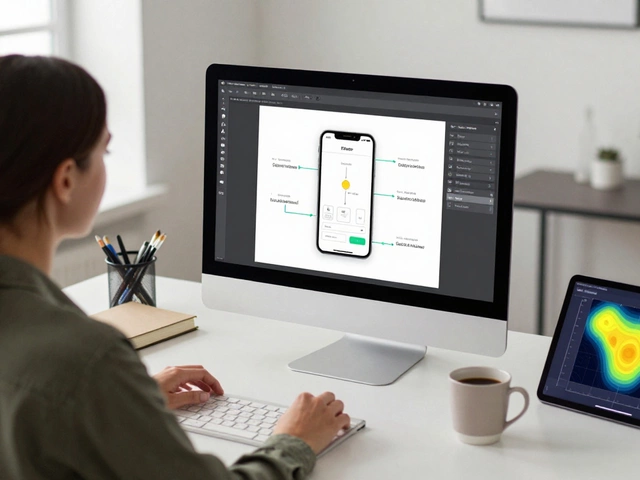So, you're 27 and wondering if you’re too old to start coding? Short answer: absolutely not! In fact, starting at 27 might even give you an edge. Why? You're likely more disciplined, have a clearer sense of what you want, and can juggle different responsibilities better than you could a few years ago. These are all super handy skills when diving into JavaScript.
JavaScript is one of those languages that's not just super useful but also pretty forgiving for beginners. You don’t need a fancy degree or a deep tech background to start. Just a bit of curiosity and maybe some guidance. Whether it’s building a simple website for your own venture or gearing up for a career shift, JavaScript can open a lot of doors.
I've met folks who picked up coding well into their 30s, 40s, and beyond! They all echo the same sentiment: learning to code changes how you think, and it gives you a creative outlet that’s incredibly rewarding. Plus, with the abundance of online resources and communities, you’re never really going at it alone.
- The Perks of Starting at 27
- JavaScript: Your New Best Friend
- Real Stories of Career Shifts
- Tips to Succeed in Your Coding Journey
The Perks of Starting at 27
Hitting the ripe age of 27 and considering a new career path or hobby like coding is actually pretty neat. Why? Let's break it down. First off, at 27, you've got a solid mix of maturity and energy. You're old enough to be focused and young enough to tackle new challenges head-on. This is a sweet spot for diving into coding, especially in something as dynamic as JavaScript.
Think about it: throughout your 20s, you've probably picked up various skills, be it time management from juggling jobs, communication from interacting with folks, or even persistence from sticking through life's rollercoaster. These skills translate directly into learning JavaScript. You're more disciplined and likely better at staying motivated when challenges pop up.
Moreover, starting to code at 27 can offer a unique perspective. You might approach problems differently compared to someone younger and more fresh-minded. You've seen a bit more of the world, so you're bringing that real-life wisdom right into your coding journey.
Plus, the tech world is more welcoming than ever to folks making a late entry. Loads of companies value diverse backgrounds and experiences, seeing them as strengths rather than hindrances. You've got a good shot at blending your previous experience with new coding skills to stand out in the tech landscape.
- Increased Focus: You're likely more goal-oriented now, cutting down unproductive learning time.
- Real-world Experience: Use past work experiences to relate better to the tech problems you're solving.
- Resource Accessibility: Tons of online courses and coding bootcamps designed for those starting fresh in their late 20s.
And let's chat numbers for a sec. Did you know that the average starting salary for a junior developer in the UK is around £28,000? Jumping into coding at 27 means you could soon be ready to tap into this exciting, evolving industry.
JavaScript: Your New Best Friend
Alright, let’s talk JavaScript. It’s kinda like the Swiss Army knife of the coding world. You know, when you see those fancy interactive websites or those slick user interfaces, chances are JavaScript is working behind the scenes. It's one of the three core technologies of web development, alongside HTML and CSS.
One of the things that makes JavaScript so appealing is its versatility. You can use it to build the front end of websites, back-end servers with Node.js, or even mobile apps with frameworks like React Native. That’s tons of avenues to explore!
JavaScript is also beginner-friendly. It's syntax is more intuitive compared to some other languages, which is a big win when you're just starting. Plus, there’s this huge community out there. You can find tutorials, forums, and online courses that make learning a tad easier.
"JavaScript is the duct tape of the Internet." – Charlie Campbell, Web Developer
This quote really nails it because JavaScript is everywhere. You can start with simple things, like manipulating the content of a webpage, and move up to complex web applications. What’s cool is seeing immediate results from the code you write, which helps keep your interest pumped.
- Interactive Websites: Transform a static site into a dynamic experience—all thanks to JavaScript.
- Server-Side Development: With Node.js, JavaScript isn’t just stuck in the browser anymore.
- Mobile App Development: Use your JavaScript skills to create cross-platform apps.
Even beyond that, job opportunities for JavaScript developers are on the rise. Being such a widely-used language, it opens lots of doors professionally, making it easier to shift gears in your career.
| Year | Job Postings for JavaScript |
|---|---|
| 2020 | 45,000 |
| 2023 | 60,000 |
That's a pretty sweet jump, right? Learning JavaScript at 27 could be the best decision you make, and who knows what cool stuff you'll create along the way!

Real Stories of Career Shifts
Ever wonder if you can really switch gears professionally at 27? Let me tell you, you're definitely not alone. Check out Mark's story. He was working in retail until he stumbled onto coding tutorials online. By 28, he'd nabbed his first job as a front-end developer, all thanks to his new skills in JavaScript.
Then there's Emma. She was a teacher for nearly a decade. Passionate about tech but unsure where to start, she joined a coding bootcamp focusing on JavaScript. Now, Emma blends her teaching skills with her newfound coding talent, creating educational software. She's even inspired some of her students to start learning coding early.
Or consider Alex, who was a graphic designer struggling to make ends meet. He wanted more control over his projects and knew learning JavaScript could expand his toolkit. After a few months of intensive learning, Alex was not just designing websites but coding them from scratch. His clients quickly noticed the added value, and his business took off.
Stories like these are becoming more common. It's about finding what drives you and using it to fuel a new path. You might find yourself tapping into experiences from previous jobs that you never thought relevant. And with coding being such a versatile skill, who knows where it might lead?
Remember, the landscape of work is changing fast. Companies appreciate diverse backgrounds more than ever, realizing people with varied experiences can offer fresh perspectives and solutions. So, if you're 27 or beyond, taking the plunge into coding could be one of the best decisions you make.
Tips to Succeed in Your Coding Journey
Jumping into coding at 27 might feel like you're late to the party, but don't worry—everyone's welcome, no matter when they arrive. Here are some practical tips to help you navigate the world of JavaScript and make the most of your new venture.
1. Set Clear Goals
Know why you're learning JavaScript. Is it to switch careers, build your own projects, or just for fun? This clarity will guide your learning path and keep you motivated. Write down your goals and revisit them often to track your progress.
2. Break It Down
Don't try to swallow everything at once. Break down JavaScript into manageable parts. Focus on basic concepts first, like variables, functions, and loops. Once you've got the basics down, tackle more complex topics like asynchronous programming or DOM manipulation.
3. Practice Consistently
Coding is a skill, and like any skill, it requires regular practice. Aim for daily or at least consistent weekly sessions. Use platforms like Codecademy or FreeCodeCamp to keep yourself engaged. These platforms offer structured lessons and projects that can help cement your learning.
4. Join a Community
Learning alone can sometimes feel isolating. Join online communities like Reddit's JavaScript subreddit or Stack Overflow. These platforms are full of developers who can help answer questions and provide support. Plus, it’s a great way to stay updated with the latest trends and updates in the coding world.
5. Build Real Projects
Nothing boosts your confidence like a finished project. Start small, maybe a personal website, then gradually build more complex apps. Each project will teach you something new, and you’ll get a sense of accomplishment upon completion.
6. Don't Be Afraid to Fail
Mistakes are part of the process. Each error message and bug you encounter is a stepping stone to becoming a better coder. Embrace them, learn from them, and move on. Perhaps consider pair programming with others—it’s a great way to learn and troubleshoot more effectively.
Keep in mind that achieving fluency in coding at 27 can lead to exciting opportunities. Someone once mentioned that about 40% of jobs now involve some level of coding, even in non-tech fields. So, your efforts to learn JavaScript can really pay off. Plus, knowing how to code gives you new lenses to view and solve problems, whether in your career or personal life.





